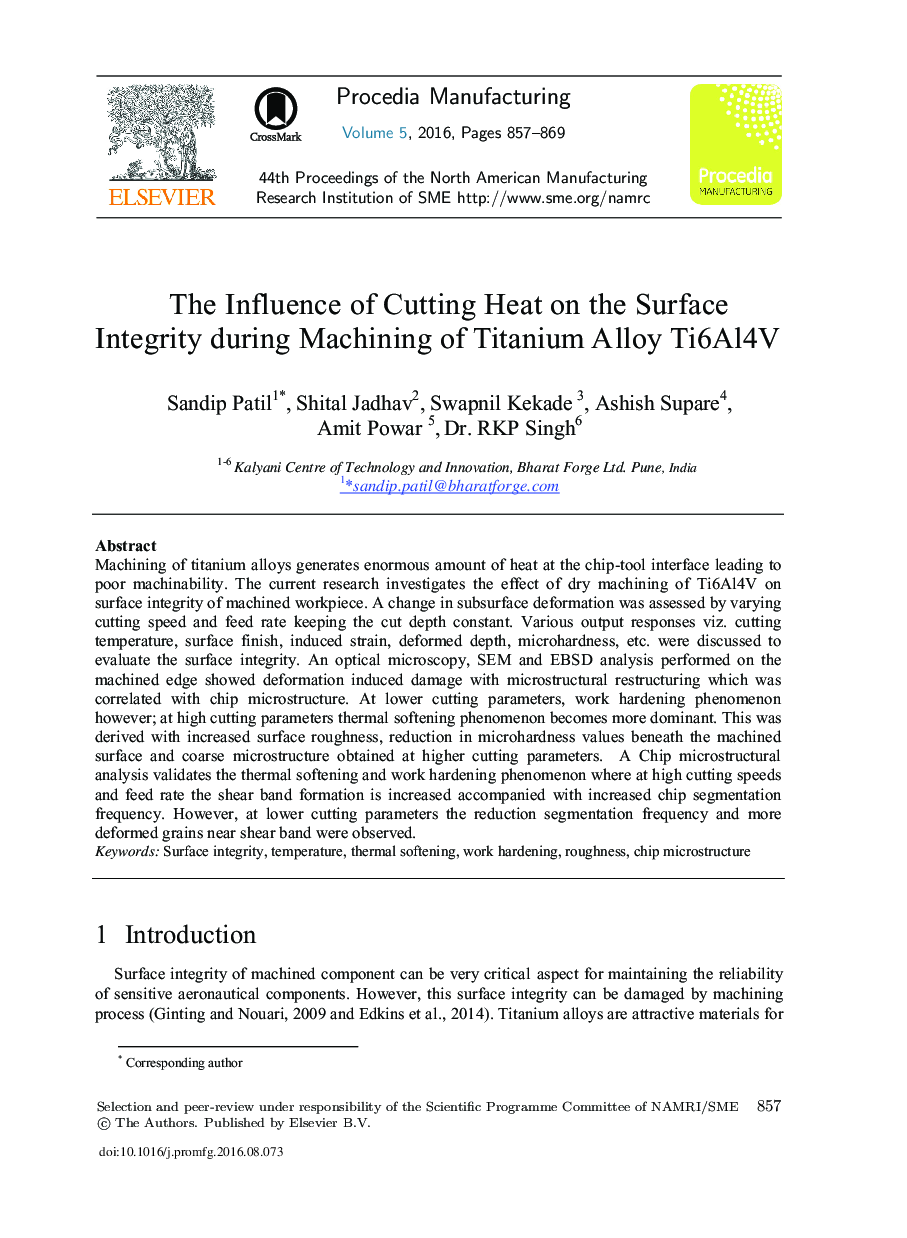| Article ID | Journal | Published Year | Pages | File Type |
|---|---|---|---|---|
| 5129070 | Procedia Manufacturing | 2016 | 13 Pages |
Machining of titanium alloys generates enormous amount of heat at the chip-tool interface leading to poor machinability. The current research investigates the effect of dry machining of Ti6Al4V on surface integrity of machined workpiece. A change in subsurface deformation was assessed by varying cutting speed and feed rate keeping the cut depth constant. Various output responses viz. cutting temperature, surface finish, induced strain, deformed depth, microhardness, etc. were discussed to evaluate the surface integrity. An optical microscopy, SEM and EBSD analysis performed on the machined edge showed deformation induced damage with microstructural restructuring which was correlated with chip microstructure. At lower cutting parameters, work hardening phenomenon however; at high cutting parameters thermal softening phenomenon becomes more dominant. This was derived with increased surface roughness, reduction in microhardness values beneath the machined surface and coarse microstructure obtained at higher cutting parameters. A Chip microstructural analysis validates the thermal softening and work hardening phenomenon where at high cutting speeds and feed rate the shear band formation is increased accompanied with increased chip segmentation frequency. However, at lower cutting parameters the reduction segmentation frequency and more deformed grains near shear band were observed.
